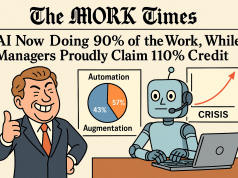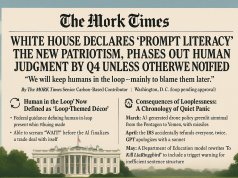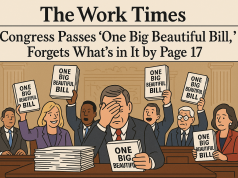In recent years, the public health landscape has been reshaped by a slew of global health challenges, ranging from the pervasive reach of the COVID-19 pandemic to the silent yet steady rise of non-communicable diseases. These phenomena have not only put a spotlight on the significance of public health systems but have also amplified the demand for skilled public health professionals. However, a worrying disconnect has emerged, one that lies between the real-world skills required in the public health workforce and the training currently offered by academic institutions.
As we witness a dramatic shift in the public health sector, it’s critical to take stock of the emerging skill gaps and brainstorm effective strategies for empowering the next generation of public health workers. One of the essential components of this empowerment is interdisciplinary training. Today’s public health challenges are complex and multifaceted, necessitating a workforce that is not only trained in traditional health sciences but also proficient in social sciences, environmental studies, and policy analysis. This blend of knowledge allows professionals to approach health issues from a holistic standpoint, addressing the underlying determinants of health and fostering more sustainable solutions.
Furthermore, in our data-driven world, the integration of technology and data analysis skills into the public health curriculum is no longer optional—it’s imperative. The ability to collect, analyze, and interpret large datasets is critical for disease surveillance, health trend monitoring, and informing policy decisions. Public health professionals equipped with these skills are better positioned to respond to health crises with agility and precision.
Another consequential shift is the movement towards a more globalized and culturally competent workforce. As diseases know no borders, public health professionals must be adept at working in diverse cultural contexts, understanding and respecting the intricacies of varied health beliefs and practices. This global perspective is invaluable in combating health threats that transcend national boundaries and in participating in international collaborations to improve health outcomes.
To address these evolving needs, public health organizations and educational institutions must engage in a concerted effort to develop curricula that are responsive to the dynamic demands of the workplace. This involves not only revising academic syllabi but also offering practical, hands-on experiences through internships and partnerships with public and private health entities. By doing so, students can gain real-world insights and develop the competencies that are in high demand.
For public health professionals already in the field, staying competitive and relevant means committing to lifelong learning and continuous skill development. Whether through formal education, workshops, or professional networks, staying abreast of emerging trends and technologies is crucial for career advancement and effective public health practice.
In conclusion, the changing landscape of public health jobs is a clarion call for action. It beckons a reimagining of public health education and a reinforcement of the skill sets required to navigate the complexities of modern health issues. Only through active collaboration between academia and industry, as well as a commitment to ongoing professional development, can we bridge the skill gap and fortify our public health workforce against the challenges that lie ahead. The Researchers Club, with its New York Times-like focus on work, worker, and workplace, stands at the forefront of this transformative journey in the public health sector.


























